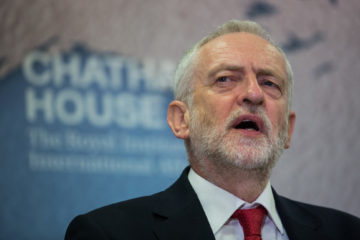The budget delivered by George Osborne on the 16th of March 2016 sparked controversy, but one of the less discussed aspects of it was climate. This point is, however, crucial, as the budget announces key energy tax reforms, claiming to ensure that targets will be met at the lowest cost for the taxpayer.
Included in the government’s plans are abolition of the CRC (carbon reduction commitment) energy efficiency scheme, which was estimated to reduce carbon emissions by 1.2 million tonnes by 2020, an attempt to rebalance the Climate Change Levy rates for different fuel types to encourage reductions in the use of gas and the abolition of the Petroleum Revenue Tax and other tax breaks for fossil fuels. The budget openly supports the continuing search and use of oil and gas: Osborne in his budget statement declared that the government believes “in making the most of the UK’s oil and gas resources”.
Climate activists have been extremely critical towards the budget. Sophie Yeo, of Carbon Brief, points out that while the Committee on Climate Change estimate that a 61% cut in emissions from 1990 levels is required by 2030 to meet the UK’s COP21 agreement, the budget presents no real attempt to make this happen. Green Alliance director Matthew Spencer concurs, highlighting that the budget will not cover funding for offshore wind projects for more than 1GW of energy by the 2020s. The UK is a world leader in offshore wind expertise and offshore wind turbines currently provide around 15 terawatt-hours of electricity annually. Greenpeace have openly condemned the government for cutting support to renewables whilst actively supporting the fossil fuel sector.
The UK has huge potential for renewable energy: solar panels now produce enough electricity to power around 2.4 million homes in the UK. Along with reductions in price and extensive public support, the success story of solar panels again shows the potential for renewable energy in the UK. And yet, the 2016 budget shows George Osborne’s continuing support for the damaging, not to mention expensive, oil and gas industries.
More worrying perhaps, is the fact that the new budget could mean Britain will struggle to uphold its commitments to the international community. In November last year already, energy secretary Amber Rudd admitted that the UK’s policies would not be enough for it to meet its EU target of 15% of energy sourced from renewable sources by 2020.
The budget does little to alleviate concerns. Climate expert Richard Black, director of the Energy and Climate Intelligence Unit, criticized the budget, saying: “The chancellor said several times that this was a budget for future generations, it’s not evident that he has internalised the implications of the recent Paris climate summit. The concrete measures he’s announced barely make a difference to this generation.” Green MP Caroline Lucas used harsh words to comment on the new budget, calling it “climate wrecking” and stating that “This budget locks us into fossil fuel dependency and completely contradicts the Prime Minister’s call to action at the Paris climate talks.”
The government’s policies are all the more puzzling when David Cameron himself appeared to take the threat of climate change seriously, when he addressed the international community at the COP21 summit: “What I’m saying is that instead of making excuses tomorrow to our children and grandchildren, we should be taking action against climate change today.” Yet while delivering such speeches, the Prime Minister and his government have been giving tax breaks to the fossil fuel industry and slashing support for the solar industry, jeopardising both a clean future for the UK and thousands of jobs. Damian Carrington, writing for the Guardian, pointed to yet another contradiction in the government’s policy when he noted that,“unlike oil and gas jobs, these seem not to matter.”
The “future generation” to whom Osborne dedicated his budget is left, at best, in a climate limbo that imperils the pledges made in Paris. In Friends of the Earth campaigner Liz Hutchins’ words, “It’s almost as if the recent UN climate agreement never occurred. What happened in Paris, appears to have stayed in Paris.”


